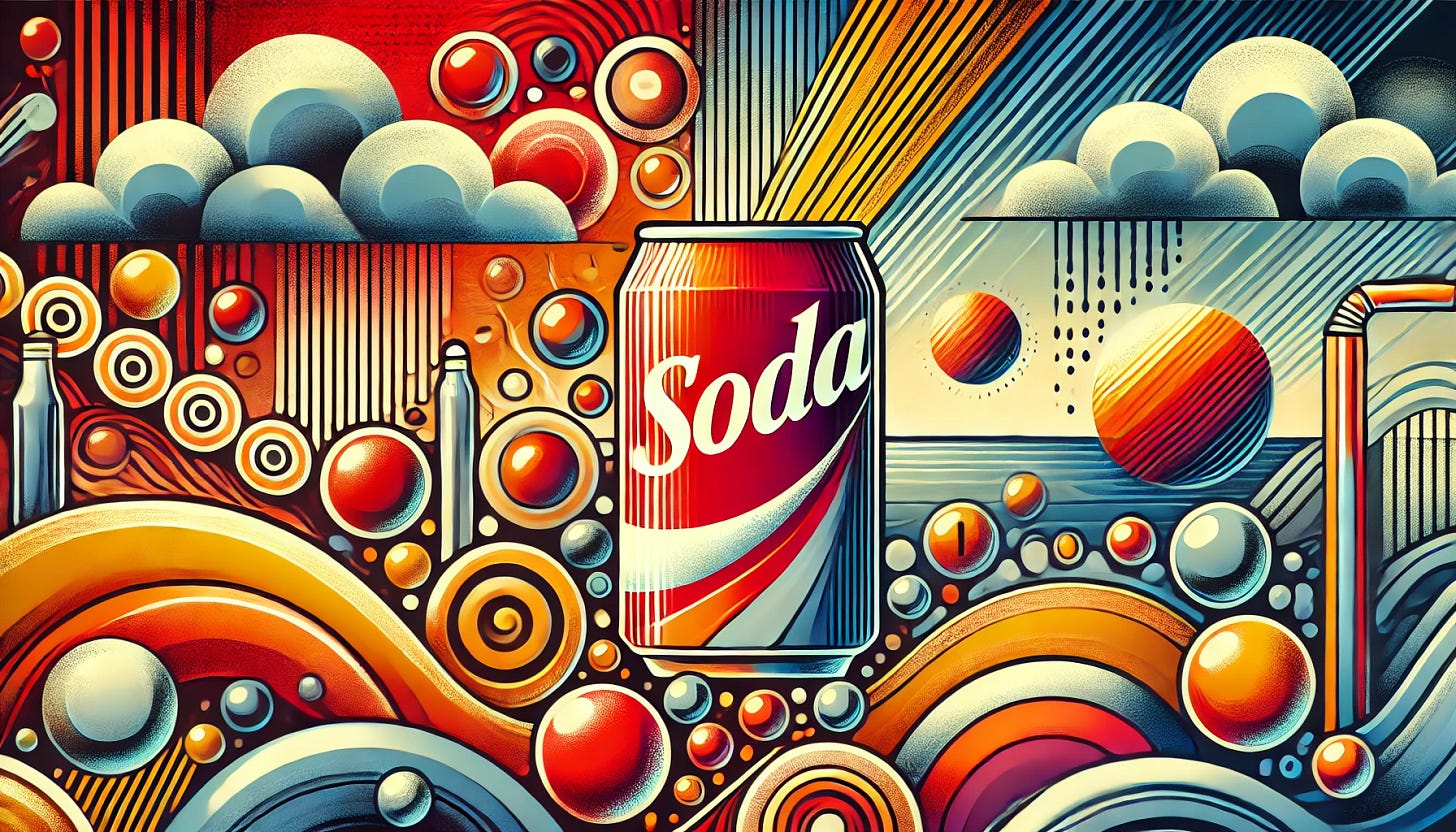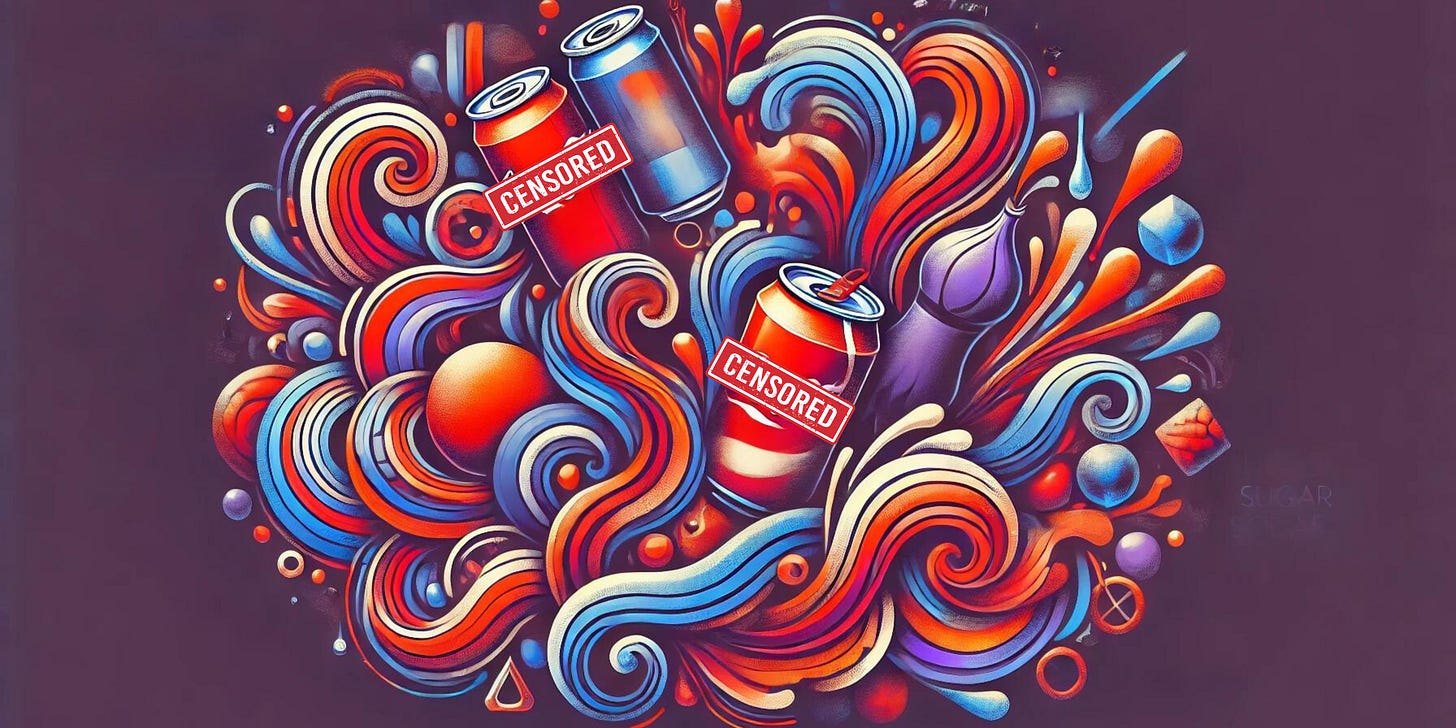Craving the Fizz: The Hidden Dangers Lurking in Your Favourite Soda
Why That Refreshing Sip Could Be Sabotaging Your Health – Discover the Risks Before You Pop Open Another Can
Nothing quite compares to the satisfaction of a cold beverage on a sweltering day. An ice-cold soft drink feels like the perfect antidote to quench your thirst, with its bubbly sensation offering a refreshing change from plain water. Soda-infused drinks instantly lift spirits and provide that much-needed jolt of coolness in oppressive heat.
Soft drinks are ubiquitous, with a variety of brews available globally that mix soda water with syrups to create a delightful, fizzy treat. The effervescent sensation and distinct taste of these drinks come from dissolved carbon dioxide (CO2). But beyond the bubbles and fizz, what impact do sodas really have on our bodies?
Before diving into the health effects, let's explore what makes sodas so enticing.
Why Do We Crave Soda?
The allure of carbonated drinks lies in their blend of water, carbon dioxide, sweeteners, colors, acids, and flavors—many times even caffeine. These ingredients transform plain soda water into a sugary, flavorful beverage. Flavors can be derived from fruit juice, natural extracts, or artificial sources.
Many people seek a drink that not only quenches their thirst but also delivers a burst of flavor. The high sugar content often drives people to choose sodas over natural fruit juices or water, as sugar triggers dopamine release in the brain, creating a cycle of craving once the initial rush wears off. Interestingly, even “diet” or “zero sugar” versions of sodas can be addictive, indicating that the craving isn’t solely due to sugar. Ingredients like caffeine and the carbonation itself also contribute to the addictive nature of these beverages.
The Hidden Health Risks of Sugary (and so-called zero-sugar) Sodas
Though popular, soft drinks offer no nutritional value and are linked to numerous health issues.
High sugar content in these drinks is particularly harmful to dental and general health, especially for children and adolescents. The sugars in sodas are highly cariogenic (causing tooth decay) and acidogenic (leading to acidity).
Whether regular or diet, sodas have been associated with serious health conditions, including:
Blood Pressure: Regular consumption of soft drinks is linked to increased blood pressure. High-fructose corn syrup, commonly used in sodas, has been associated with oxidative stress, fat accumulation, and vascular damage, all of which can elevate blood pressure.
Chronic Diseases: Sugary sodas contribute to chronic conditions such as Type-2 diabetes, heart disease, kidney disease, and non-alcoholic liver disease.
Weight Gain: The prolonged intake of sugary soft drinks is a significant risk factor for weight gain and obesity. Unlike solid foods, sodas don’t provide the same feeling of fullness, leading to overconsumption and a preference for calorie-dense foods.
Gout: The high fructose content in sweetened sodas is linked to increased uric acid levels, which can raise the risk of developing gout.
Health Risks for Children
Children, drawn to the sweetness of sodas, are particularly vulnerable to their harmful effects. Excessive consumption of sugar-sweetened beverages can lead to obesity, tooth decay, and other health issues. Frequent intake of sodas, especially during critical growth periods, may also affect bone health by impacting calcium absorption and bone density.
While soft drinks may seem refreshing and tasty, their high sugar and additive content make them one of the least healthy beverage choices. With significant potential harm, it’s worth considering healthier alternatives.
Healthier Thirst-Quenchers
Instead of reaching for a soda, consider options like homemade iced tea with honey, coconut water, fruit-infused water, or cool watermelon juice. These natural beverages not only refresh but also contribute to your overall well-being.
By making small, conscious changes to our drink choices, we can enjoy the summer months while maintaining our health. Next time you’re tempted by a soda, why not try a healthier alternative instead?





